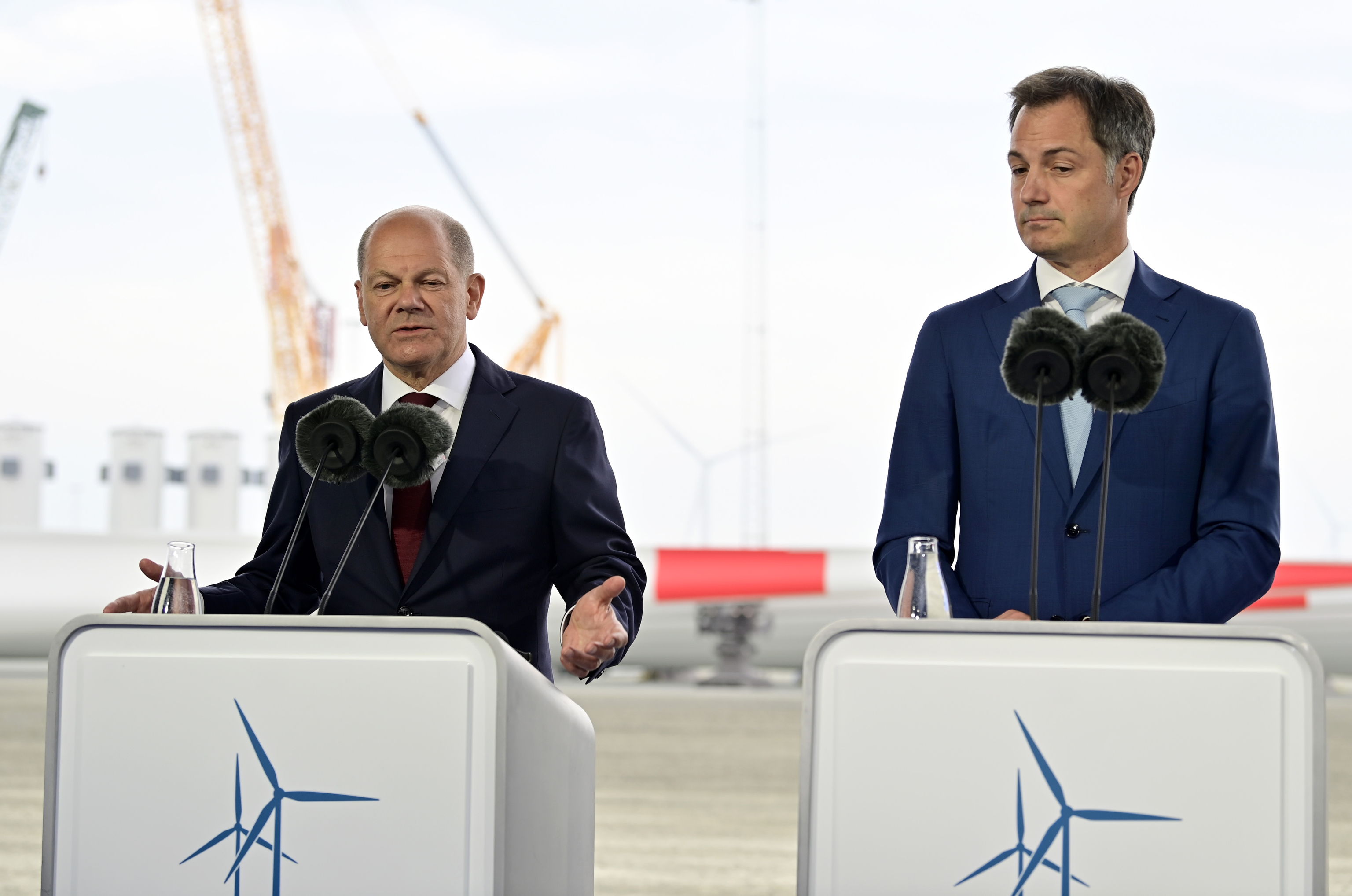Five new countries join North Sea coalition ahead of Ostend summit

Five countries are joining the coalition that aims to turn the North Sea into a major green power hub by building offshore wind farms. France, the UK, Ireland, Norway and Luxembourg are set to join the existing members, Belgium, Germany, Denmark and the Netherlands. The nine countries plan to finalise the terms of the expansion at a summit in Ostend.
In May last year, prime minister Alexander De Croo and Energy minister Tinne Van der Straeten travelled to Denmark. With their counterparts from Denmark, Germany and the Netherlands, they signed the Esbjerg Declaration, an agreement that aims to increase wind turbine capacity tenfold by 2050 and turn the North Sea into a significant hub for green power production.
The four countries committed to increasing the combined capacity of their offshore wind farms to 65 GW by 2030 and 150 GW by 2050 - the equivalent power consumption of 150 million households.
A second North Sea summit will take place in Ostend on Monday with the five new members. Despite being landlocked, Luxembourg is "virtually a North Sea country", De Croo said.
Pioneer in offshore wind
The choice of Ostend as the location for the summit is no coincidence. Belgium is a pioneer in building offshore wind turbines and has become a world leader in constructing offshore wind farms. Flanders-based marine contractors DEME and Jan De Nul, for example, are global players in the sector.
The summit's ambition is not just to expand offshore wind farm capacity - the nine countries together are aiming for 134 GW by 2030 and more than 300 GW by 2050 - but also to manage implementation. "The speed of implementation is the real issue of the North Sea Summit," De Croo said.
Additionally, the countries aim to agree on standardising future wind farms to ensure, for example, they are all using the same technology. This should allow the parks to be built more quickly. There is also a need for agreements on tenders, interconnection and safety.
The commitment to turn the North Sea into a major green power hub should help reduce dependency on fossil fuels - especially from Russia - and ensure the security of supply and access to green and affordable energy. "Renewable energy is the solution to both the energy and climate crises," Van der Straeten said.
(BRV)
Chancellor of Germany Olaf Scholz and Belgian prime minister Alexander De Croo pictured at the North Sea Summit in Ejsberg, Denmark, Wednesday 18 May 2022 © BELGA PHOTO POOL PHILIP REYNAERS